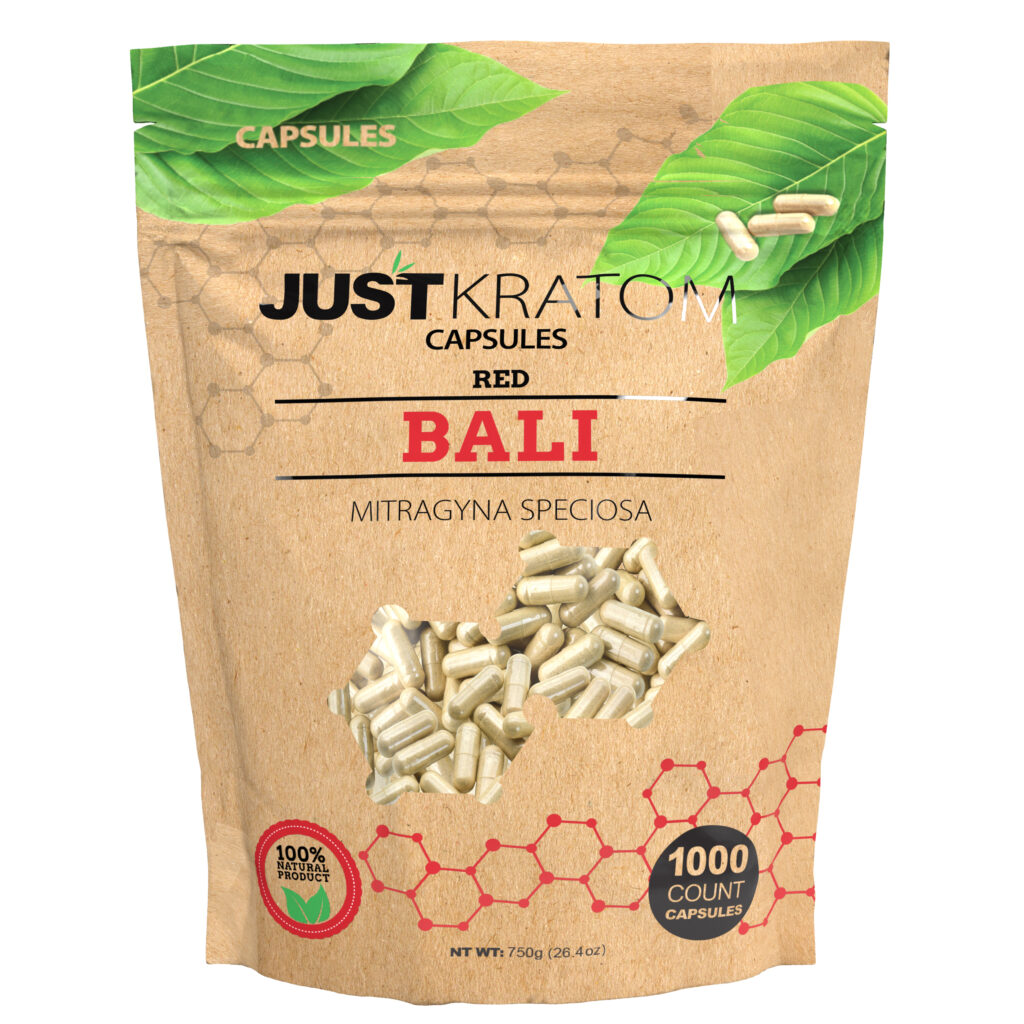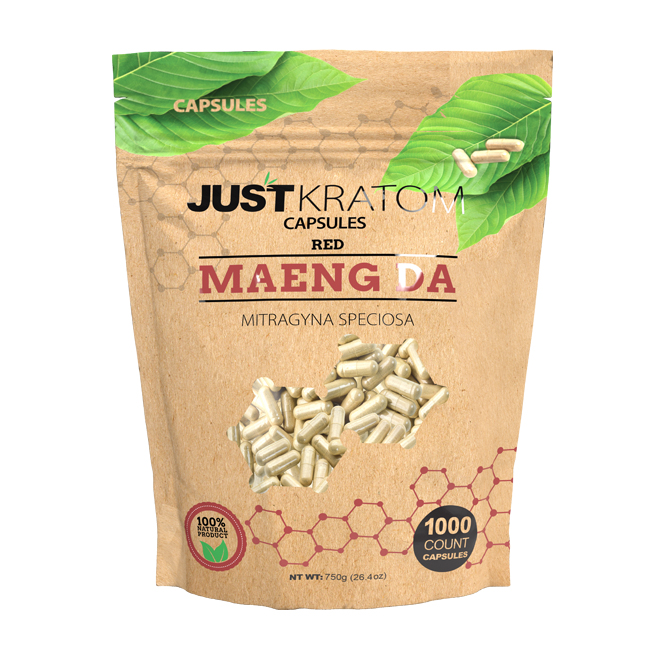Kratom’s Potential for Anxiety Relief

Kratom, a tropical plant native to Southeast Asia, has gained increasing attention for its potential therapeutic benefits, particularly in managing anxiety and stress. Traditionally used for centuries as a natural remedy, kratom contains alkaloids that are thought to interact with opioid receptors in the brain, potentially producing mood-boosting and calming effects. While research on kratom’s efficacy for anxiety is still ongoing, preliminary studies suggest it may offer a promising alternative for those seeking natural ways to alleviate symptoms of anxiety and stress.
How Kratom May Impact the Endocannabinoid System
Kratom, a tropical plant native to Southeast Asia, has gained increasing attention for its potential therapeutic benefits, particularly in managing anxiety and stress. Traditionally used for centuries as a natural remedy, kratom contains alkaloids that are thought to interact with opioid receptors in the brain, potentially producing mood-boosting and calming effects. While research on kratom’s efficacy for anxiety is still ongoing, preliminary studies suggest it may offer a promising alternative for those seeking natural ways to alleviate symptoms of anxiety and stress.
One potential mechanism by which kratom may exert its anxiolytic effects is through its influence on the endocannabinoid system (ECS).
- The ECS is a complex network of receptors, enzymes, and neurotransmitters that play a crucial role in regulating various physiological processes, including mood, anxiety, and stress response.
- Studies suggest that kratom alkaloids may modulate the activity of cannabinoid receptors, particularly CB1 receptors, which are widely distributed throughout the brain and are involved in mediating anxiolytic effects.
Research on Kratom and Anxiety
Kratom, a tropical plant native to Southeast Asia, has gained increasing attention for its potential therapeutic benefits, particularly in managing anxiety and stress. Traditionally used for centuries as a natural remedy, kratom contains alkaloids that are thought to interact with opioid receptors in the brain, potentially producing mood-boosting and calming effects. While research on kratom’s efficacy for anxiety is still ongoing, preliminary studies suggest it may offer a promising alternative for those seeking natural ways to alleviate symptoms of anxiety and stress.
One potential mechanism by which kratom may exert its anxiolytic effects is through its influence on the endocannabinoid system (ECS). The ECS is a complex network of receptors, enzymes, and neurotransmitters that play a crucial role in regulating various physiological processes, including mood, anxiety, and stress response. Studies suggest that kratom alkaloids may modulate the activity of cannabinoid receptors, particularly CB1 receptors, which are widely distributed throughout the brain and are involved in mediating anxiolytic effects.
Dosage and Administration of Kratom Capsules
When considering kratom capsules for anxiety and stress relief, understanding dosage and administration is crucial. The appropriate dose can vary depending on individual factors such as body weight, metabolism, and the severity of symptoms. It’s essential to start with a low dose and gradually increase it as needed, always monitoring for any adverse effects.
Optimal Dosage for Anxiety Relief
Dosage and administration guidelines for kratom capsules intended for anxiety relief are not yet clearly established due to ongoing research.
- It’s generally recommended to begin with a low dose of 1-3 grams of kratom powder or an equivalent dosage in capsule form.
- If desired effects are not observed, the dose can be gradually increased by 1 gram increments up to a maximum of 5-8 grams per day.

It’s important to note that kratom’s effects can vary significantly from person to person.
Administration Methods and Timing
Dosage and administration guidelines for kratom capsules intended for anxiety relief are not yet clearly established due to ongoing research. It’s generally recommended to begin with a low dose of 1-3 grams of kratom powder or an equivalent dosage in capsule form. If desired effects are not observed, the dose can be gradually increased by 1 gram increments up to a maximum of 5-8 grams per day.
It’s important to note that kratom’s effects can vary significantly from person to person.
Potential Side Effects and Risks
Like any substance with potential therapeutic benefits, kratom use carries inherent risks and side effects. These can range from mild discomfort to more serious health issues depending on the dosage, individual sensitivity, and pre-existing medical conditions. Potential side effects of kratom include nausea, vomiting, constipation, itching, dizziness, increased heart rate, and anxiety. In rare cases, kratom use has been associated with more severe complications such as liver damage, seizures, and respiratory depression.
Common Side Effects of Kratom
Like any substance with potential therapeutic benefits, kratom use carries inherent risks and side effects. These can range from mild discomfort to more serious health issues depending on the dosage, individual sensitivity, and pre-existing medical conditions. Potential side effects of kratom include nausea, vomiting, constipation, itching, dizziness, increased heart rate, and anxiety. In rare cases, kratom use has been associated with more severe complications such as liver damage, seizures, and respiratory depression.
Risk Factors and Precautions
Potential side effects of kratom can range from mild to serious and may include nausea, vomiting, constipation, itching, dizziness, increased heart rate, and anxiety. In rare cases, more severe complications such as liver damage, seizures, and respiratory depression have been reported.
Individuals with pre-existing medical conditions, especially those involving the liver, heart, or respiratory system, should exercise extreme caution when considering kratom use. Additionally, pregnant and breastfeeding women are advised to avoid kratom due to limited safety data.
Kratom can interact with certain medications, particularly those affecting the central nervous system, such as opioids and benzodiazepines. It’s crucial to consult a healthcare professional before using kratom if you are taking any other medications.
Legality and Availability of Kratom Capsules
The legal status of kratom capsules varies significantly across different regions and countries. In some places, kratom is legal and readily available over the counter, while in others it is strictly prohibited or heavily regulated. It’s essential to research the specific laws and regulations governing kratom in your jurisdiction before purchasing or using kratom capsules.
Kratom Legal Status in Different Regions
The legal status of kratom capsules varies significantly across different regions and countries. In some places, kratom is legal and readily available over the counter, while in others it is strictly prohibited or heavily regulated. It’s essential to research the specific laws and regulations governing kratom in your jurisdiction before purchasing or using kratom capsules.
For example, in the United States, kratom’s legal status is complex and varies by state. Some states have banned kratom outright, while others have legalized it with certain restrictions.
In some European countries, kratom is legal but may be subject to restrictions on sales or quantities.
Other countries, such as Australia and Thailand, have imposed strict bans on kratom.
Where to Purchase Kratom Capsules Safely
The legality of kratom capsules varies greatly depending on your location. Some regions allow it freely while others have banned it altogether. It’s crucial to research the specific laws in your country or state before purchasing or using kratom capsules.
If you live in a place where kratom is legal, reputable online retailers and local head shops are common sources.
When buying kratom capsules online, prioritize established vendors with positive customer reviews and transparency regarding their sourcing and testing practices. Ensure the retailer provides certificates of analysis (COAs) verifying the purity and potency of their products.
Alternatives to Kratom for Anxiety Management
While kratom shows promise for anxiety relief, it’s essential to consider alternatives. Exercise regularly, practice mindfulness or meditation techniques, engage in enjoyable activities, and prioritize healthy sleep habits.
Consider therapy to learn coping mechanisms and address underlying emotional issues. Other natural options include chamomile tea, lavender oil, and L-theanine supplements, which have calming properties.
If you’re struggling with anxiety, consult a healthcare professional for personalized advice and guidance on the best course of action for your individual needs.
Get Kratom capsules for pain-free living
- Botox For Downturned Smile In Chiswick, London - May 9, 2025
- Exosome Therapy For Skin Rejuvenation Near Ashtead, Surrey - May 9, 2025
- Can You Make THC Soda At Home? A DIY Guide - May 9, 2025
